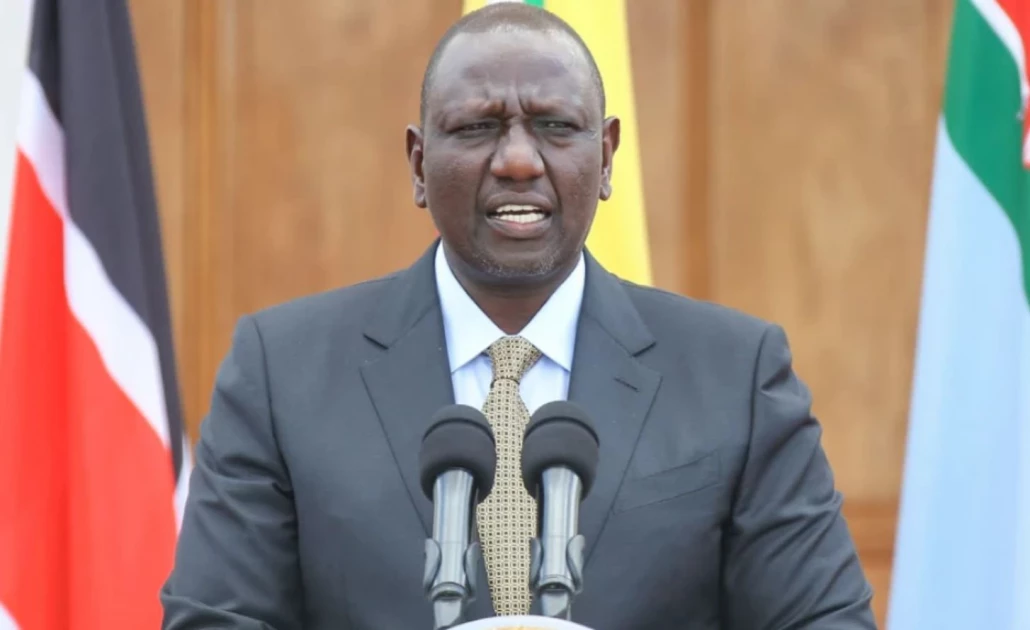Azimio to move to court over President Ruto’s pardon of 37 prisoners

President William Ruto during a past address. | FILE
Exercising
powers granted to him through the Power of Mercy Act 2011, President William Ruto
pardoned 37 convicts, allowing them the enjoyment of freedom before the expiry
of their sentences.
According
to the constitution of Kenya, the president can exercise that power on the
recommendation of the consideration of petitions filed before the advisory
committee on the Power of Mercy.
Azimio
La Umoja One Kenya Coalition says it is now moving to court to have the pardons
reversed.
“That
list is full of people who have stolen, people who have robbed and people who
have raped children, those are the people we have forgiven,” lawyer Paul Mwangi
said.
The
opposition faults the Head of State for allegedly issuing the pardons without
following due process and taking into consideration, the criteria and processes
set out in the Power of Mercy Act which includes looking at the age of the
offender and the circumstances surrounding the commission of the crime.
These
are whether the convict is a first offender, the nature and seriousness of the crime, how the convict has conducted himself post-conviction,
his character and reputation and the interests of the state as well as the
period of the sentence served which should not be less than a third of the
sentence, the period of the sentence already served.
”One,
for the criteria, is that you should have served at least a third of your
sentence before your petition can be accepted, we have several instances on
that list of people who had just started serving their sentences, or have not
gone anywhere near a third of the sentences, we have people who have committed
very serious offences, and the seriousness of the offence itself is also a criterion,”
Mwangi said.
Azimio
says the president in granting the pardons disregarded the provisions of the Act
by failing to grant victims of the crimes a hearing as well as disregarding
their feelings and without listening to the views and feelings of the public,
they also say the pardons if left to stand will only serve to encourage the
public to disregard the rule of law and encourage crime.
“We
would want to establish that we don't breed impunity and the way to do that is
to ensure that these powers can never be abused and that they are used for the
right reasons,” added the lawyer.
Among
those released under the Power of Mercy include former KEMRI director Davy Koech
who was jailed for six years in 2021 after being found guilty of fraudulently
acquiring public property.
Others
on the list of 37 included convicts of murder and attempted defilement.
The Law
Society of Kenya (LSK) has also joined those asking for more transparency in
the manner in which the power of mercy is exercised.
Speaking
to Citizen TV on the phone, LSK president Erick Theuri said the lack of
transparency in the manner in which the convicts were pardoned has added to the
discomfort surrounding the recent exercising of this power.
He
says the time is ripe for discussions around reviewing the Act to amongst other
things, bring in a sense of professionalism and transparency in the workings of
the advisory committee on the power of mercy committee.
Theuri
further says the committee should, moving forward, give reasons for pardoning
each petitioner.
Want to send us a story? SMS to 25170 or WhatsApp 0743570000 or Submit on Citizen Digital or email wananchi@royalmedia.co.ke
Comments
No comments yet.


Leave a Comment